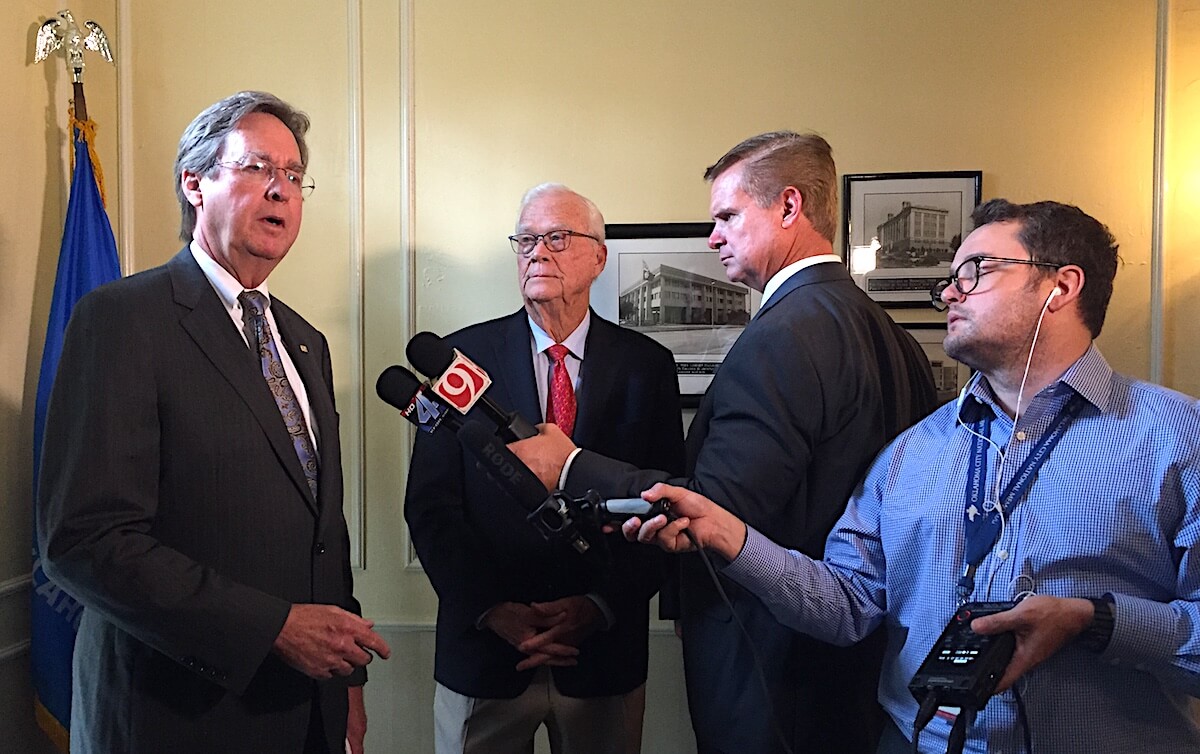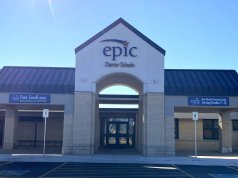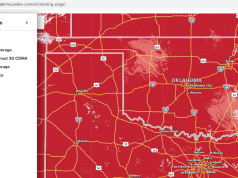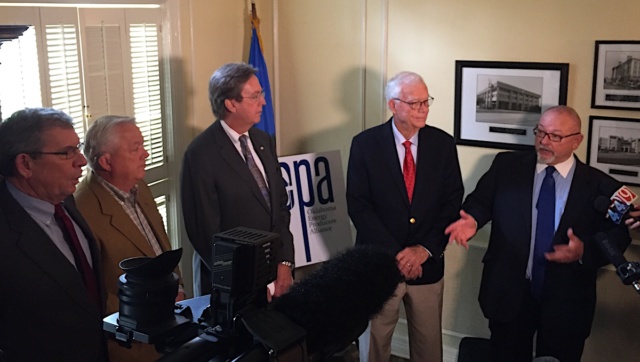

“What is GPT?”
If you were on Jeopardy!, that would be the right question for the following answer: “A complex state tax on oil and gas producers that has been wedged into Oklahoma’s political narrative and might appear on a 2018 statewide ballot.”
What a handful of Republican oil producers and a number of Democratic politicians hope is that the voting public will approve something that the Legislature has spent all year avoiding: raising the “incentive rate” for gross production taxes (GPT) from 2 to 7 percent.
“We think it’s in the best interest of Oklahomans for the gross production tax rate to go to 7 percent,” said Mike Cantrell, co-chairman of the Oklahoma Energy Producers Alliance. “The big players in the industry have done a great job of co-opting (legislative) leadership on not doing that, so we can’t think of another option except take it direct to the people with an initiative petition, which I think would pass.”
A group of vertical-well producers with historic ties to the powerful Oklahoma Independent Petroleum Association, OEPA voted at its October board meeting to support putting GPT on a 2018 ballot, Cantrell said. He added that the initiative petition will seek to change the state constitution and will require about 123,000 voter signatures to reach the ballot.
While organizers have not released specific language for their ballot effort, they have incorporated an entity called Restore Oklahoma Now, hired oilman Mickey Thompson to run the campaign and distributed a press release. In it, Thompson bashes the Senate’s now-defunct compromise plan to double the GPT incentive rate from 2 to 4 percent.
“The idea this Legislature would hike the GPT only on new wells from 2 percent to 4 percent will generate less than $20 million a year to the state,” he said. “It doesn’t scratch the surface of the need to address the education crisis. Our petition will repeal all the special GPT tiers immediately. Our petition will truly level the playing field, 7 percent on all production, period.”
But although some lawmakers and a chunk of the public have gotten on board the “restore 7 percent” train, Oklahoma is still driven by oil and gas, and the state’s biggest conductors are not interested in changing tracks.
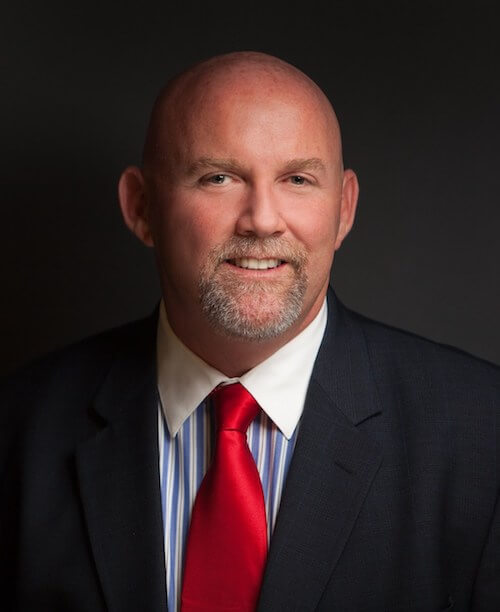
“They have the right to pursue this, but I think it’s bad from the standpoint that we are still a depressed industry,” said OIPA president Tim Wigley. “It seems to be picking up, it feels like it’s picking up. But rig count is down a little bit because prices seem stalled.”
Wigley, a native Oklahoman who has returned to guide OIPA through a changing political and petroleum landscape in the Sooner State, said he would prefer not to spend time and resources defeating the OEPA’s ballot initiative.
“I contend this really stems from the passage of the long-laterals bill this year,” Wigley said. “The future of oil and gas development is horizontal drilling, and they don’t like that. I think that is a big part of why Mike Cantrell is out there doing this.
“I’ve been out meeting with a bunch of small producers around the state, and most of those guys don’t want to see GPT go up because it’s going to hurt them either as a royalty owner or as they invest in larger wells that maybe they’re not drilling. It’s a ridiculous debate because the 2 percent rate has proven that it works. It increased exploration and production.”
Follow NonDoc:
‘There are so many things that we need in this state’
Wigley’s group, the Oklahoma Oil and Gas Association (OKOGA) and each organization’s powerful member corporations all oppose the 7 percent GPT initiative petition, but OEPA members carry interesting clout of their own, at least concerning personal public profiles.
Although OEPA member and former Republican Mayor of Tulsa Dewey Bartlett did not return a phone call for this story, his political surname has been behind GPT increase efforts as vocally as Tulsa Democratic billionaire George Kaiser. Norman’s Ray Potts has supported countless state and local nonprofit efforts through the Potts Family Foundation.
Then take a town like Seminole, home to current Republican Rep. Zack Taylor (himself an OEPA board member) and Darlene Wallace, an Oklahoma oil woman who took control of Columbus Oil when her husband, Dan, died in 2004.
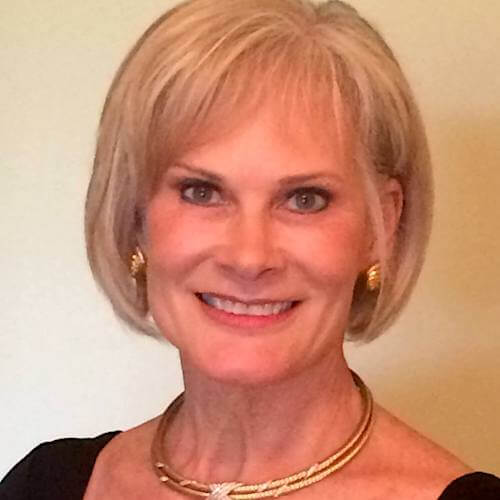
“We’re giving a depleting resource away for the cheapest price possible for taxes. Once it’s gone, what have we got left? What are we going to tax then?” Wallace said. “We need roads, we need bridges, we need mental health. There are so many things that we need in this state.”
Wallace is no stranger to Oklahoma’s political machinations herself, with her former husband having lived next to David Boren when he ran for governor in 1974. While a great deal has changed in both politics and petroleum, Wallace said she is still drilling about one well per year.
“We’re all still doing things. We just don’t do it at a mega-basis. We’re just not doing it as fast as they want it done,” Wallace said. “There’s enough for us all. Yeah, would I like to make $1 million every year? Who wouldn’t. But being realistic, if I take 5 percent less, is it really going to kill me? Now, I don’t make $1 million a year, I’ll tell you that.”
Wallace said her company spent about $350,000 this year to reopen an old well and lost about twice that in an attempt to drill a new well last year.
“We did not complete it because it was a dry hole, but it cost me somewhere about $600,000 to $700,000 to drill,” Wallace said. “I want equality as best as possible for those working in the same industry, and I don’t see equality at 7 percent when someone else is paying 2. And I see that big 5 percent difference could change our state and what it has to offer our citizens.”
OKOGA’s vice president of communications said its members oppose the announced ballot initiative.
“OKOGA is in alignment with OIPA on maintaining the permanent two-tiered GPT rate,” Donelle Harder said.
‘There’s nothing bigger in this state than Big Oil’
OU political science professor Keith Gaddie believes a vote of the people on 7 percent GPT would be an interesting campaign to observe.
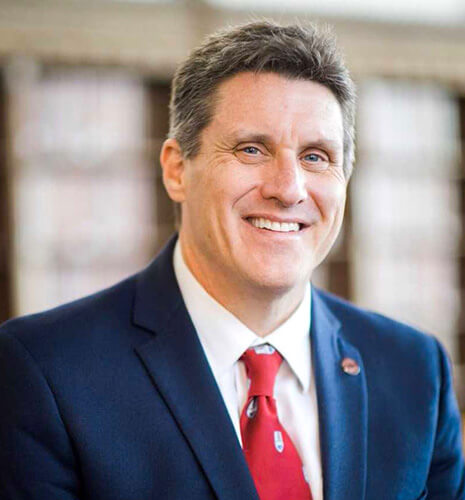
“You’ve got two competing strains of Oklahoma politics at work here,” Gaddie said. “On the one hand, there’s the old saying that no matter what you do in Oklahoma, you are in oil and gas. We’ve always said that.
“But then there’s also this populist strain of not liking big things. We don’t like too big of government, too big of religion, too big of business. And right now there’s nothing bigger in this state than ‘Big Oil’. If you’ve got a segment of the producers themselves coming along and saying, ‘Hey, let’s do something about this. Let’s pay our fair share.’ That might be a vehicle that flies.”
Gaddie noted that the easiest tax to pass is a tax on people who cannot fight back. That certainly is not the case with Oklahoma’s oil and gas interests, but he said the division over GPT complicates matters.
“Everybody forgets, there’s a historic division in this state between big royalty holders and small royalty holders,” Gaddie said. “That’s always existed in the oil and gas sector. This could exacerbate that tension and divide along it.”
‘Oklahoma cannot afford to raise taxes on this industry’
A longtime oilman and political consultant known to friends by his childhood nickname “Bubba,” Cantrell recognizes that tension as well as anyone.
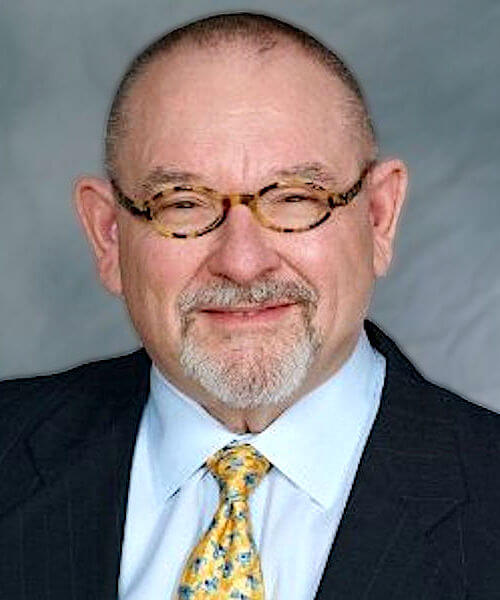
“The OEPA was created basically in April when 17 OIPA board members — and six of us are former chairmen — left the OIPA because of policies that didn’t represent the entire industry,” Cantrell said. “The other part for us was the culture at OIPA that those 17 of us helped build, which was that we never asked for anything that we didn’t think was in the best interest of the state.”
But Cantrell has aggravated Wigley, OIPA members and others this year for pushing a narrative vastly different than he did at a 2014 rally against raising industry taxes.
“The state of Oklahoma cannot afford to raise taxes on this industry, because when you raise taxes on this industry, you take money out of the economic engine that’s funding schools, that’s funding road projects, that’s building medical facilities,” Cantrell was quoted as saying then by NewsOK.com.
RELATED
OIPA vs. OEPA: Oil and gas groups push competing narratives by William W. Savage III
“At the time, I was in favor of the 2 percent incentive rate,” Cantrell told NonDoc last week. “But I never imagined it would be permanent. That was an overreach. To make a 2 percent tax rate permanent when we pay an 8.5 percent rate in Texas and 10 percent effective in North Dakota (…) a 7 percent rate is very fair.”
Wigley, who himself has years of experience running and opposing ballot initiatives across the country, said raising GPT will hurt drilling, hurt the industry and hurt Oklahoma’s economy.
“Our state doesn’t benefit as greatly from GPT as much as it does from rigs being up and operating,” he said. “That’s where the jobs come from. That’s how the hotels get filled up, and restaurants and trucks get sold.”
Wigley said he imagines the OEPA initiative will inevitably be supported by environmental advocates who simply dislike the oil and gas industry.
“I see the term ‘Big Oil’ thrown around all the time by Cantrell and his folks that are out there, and I remind people that big oil — which I think of as the big integrated companies, Exxon Mobil, ConocoPhillips and all that — none of those people are here operating in Oklahoma,” Wigley said. “They are not members of OIPA. I can’t say for sure, but I don’t think they are members of OKOGA, either. It’s a nameless, faceless term that people can throw around. But our average member company inside OIPA — we have 2,400 members — our average member employs about 11 people.”
Wallace said she employs fewer people than that and runs much of her business herself.
“I wear panties, but they don’t necessarily have lace on them,” Wallace quipped. “I said that to a guy who was trying to bully me out in a field one day.”
Wallace said that while some women might not know much about GPT, she believes the message of OEPA’s ballot initiative is ultimately about funding the state services that every Oklahoman wants.
“We need education. We need mental health. We need hospitals. So all those things affect every woman, and if you’ve got kids it affects you more,” she said. “So why would we not want what’s best for our state if it’s best for what we’re experiencing and what our kids will have? What woman would not want better for her children?”
As a former OIPA boardwoman, Wallace said Wigley’s organization no longer has Oklahoma’s best interests at heart.
“I’m not asking for this to benefit me. I’m asking for it to benefit my state and its citizens,” Wallace said. “I am so tired of people only wanting the work to benefit themselves. There’s a big world out there besides me. I guess I’m cut from a different cloth.”
While the back and forth between OEPA and OIPA may ebb and flow for the 12 months ahead of the 2018 general election, Gaddie emphasized something that will not change.
“The one thing we know about oil and gas is they can’t exactly move it,” Gaddie said. “It’s here.”








